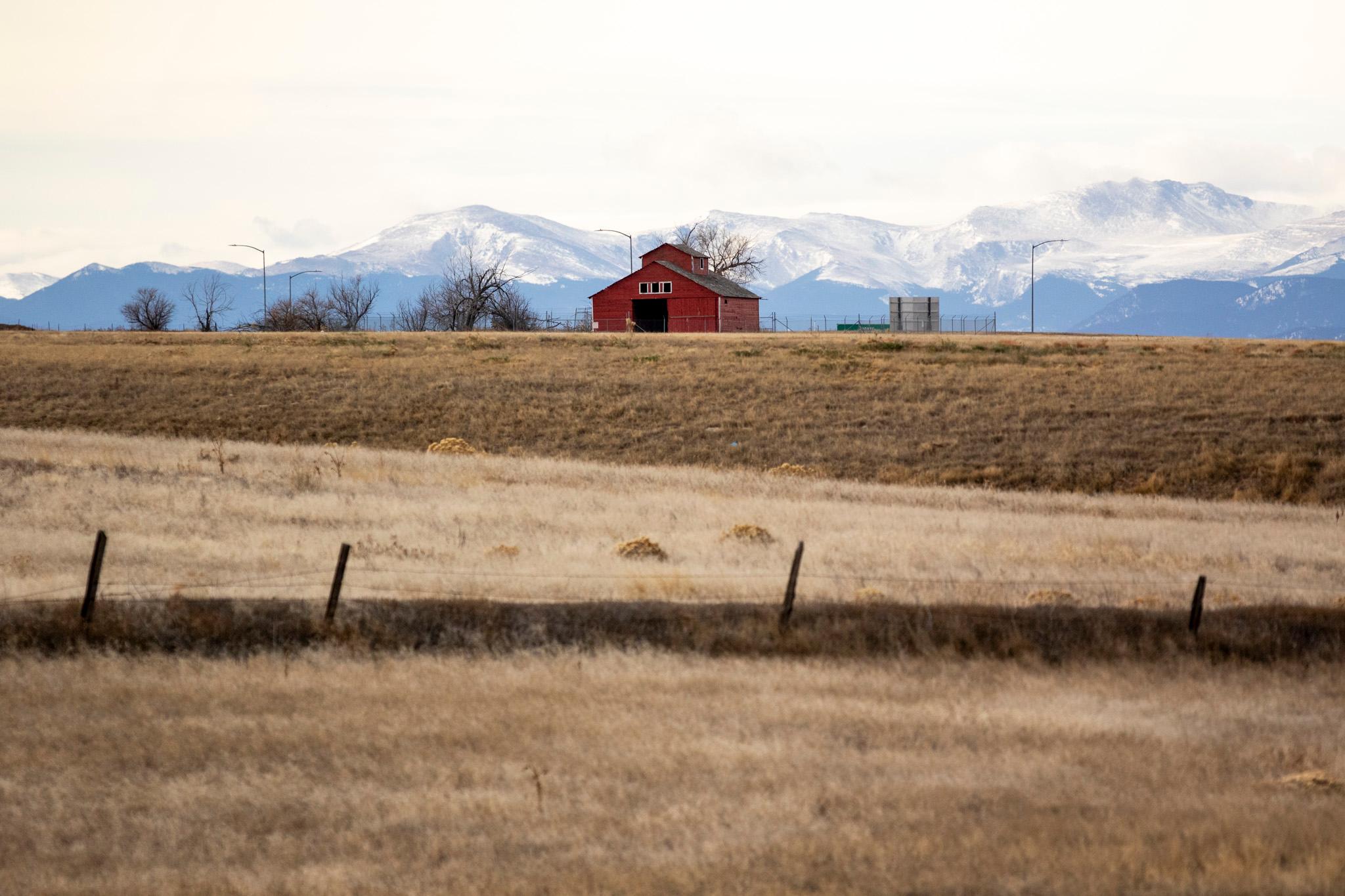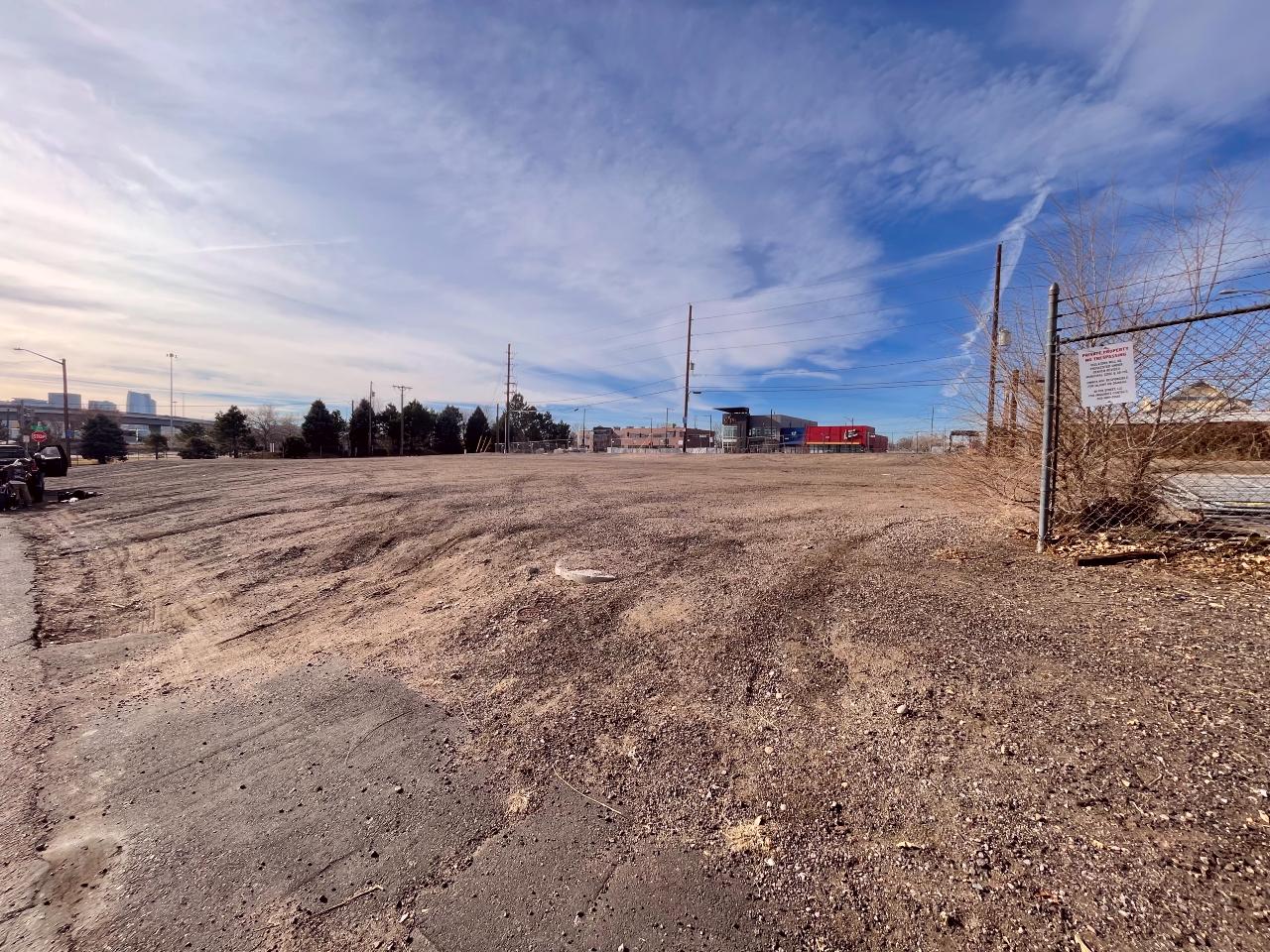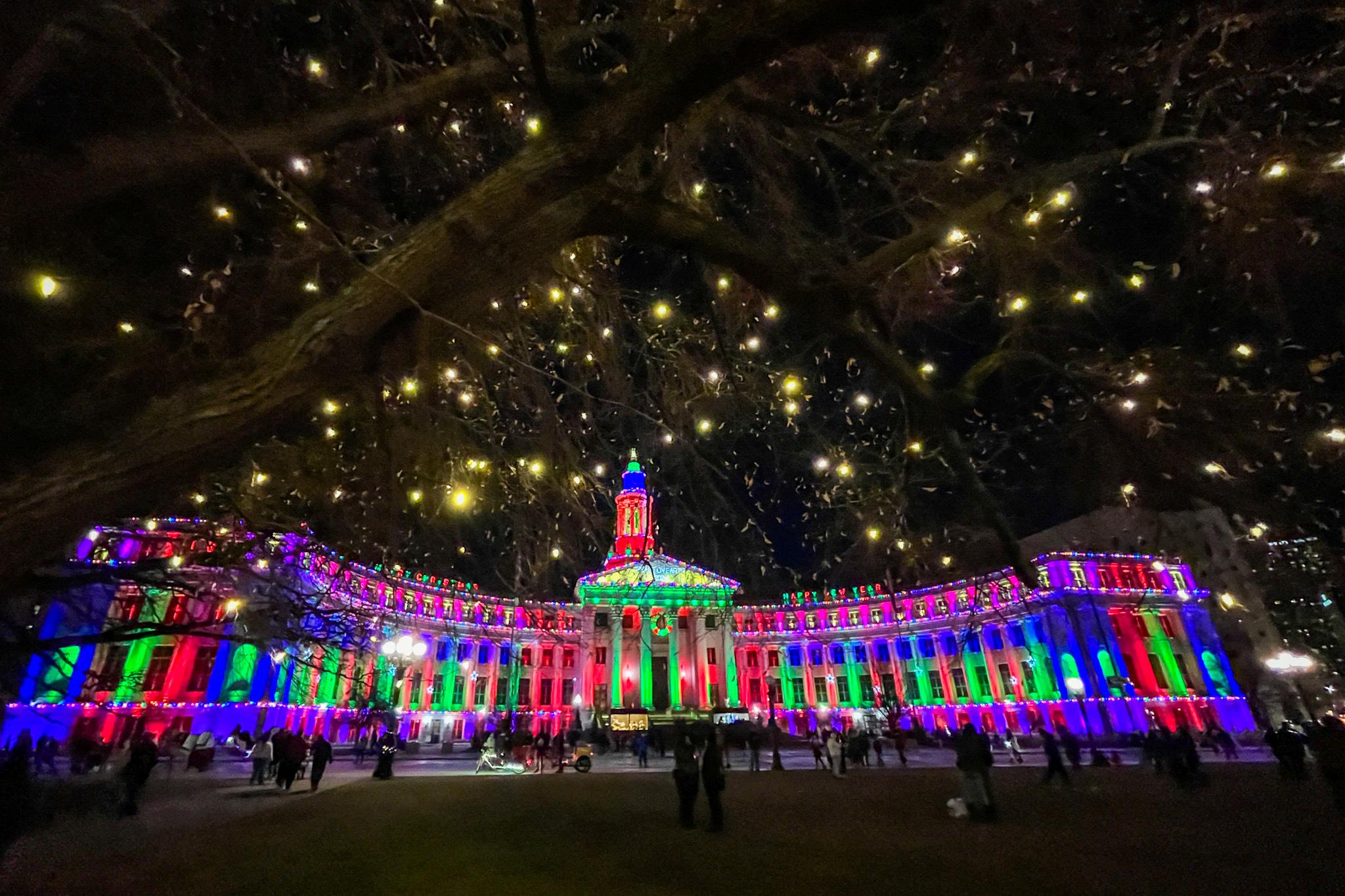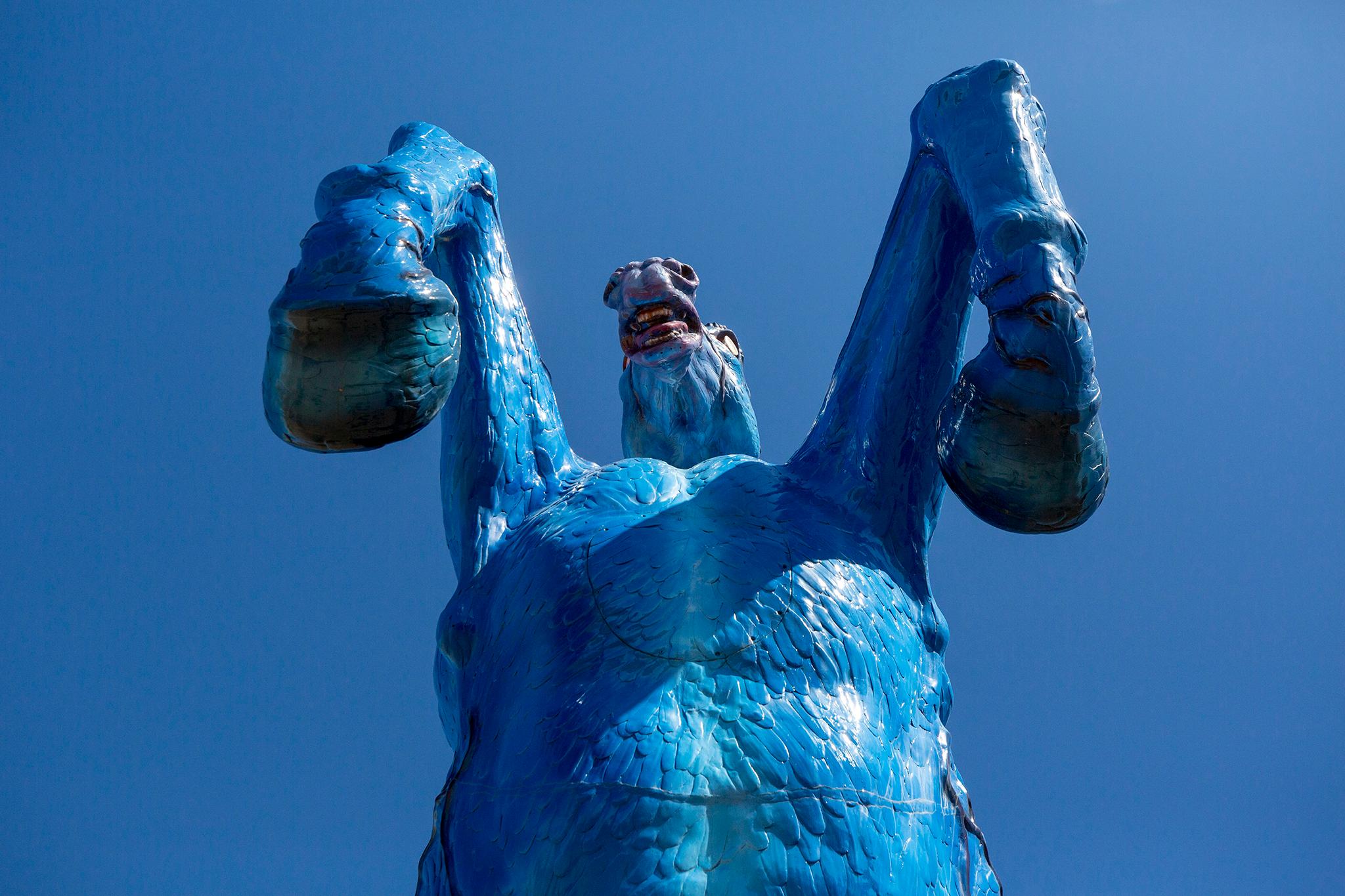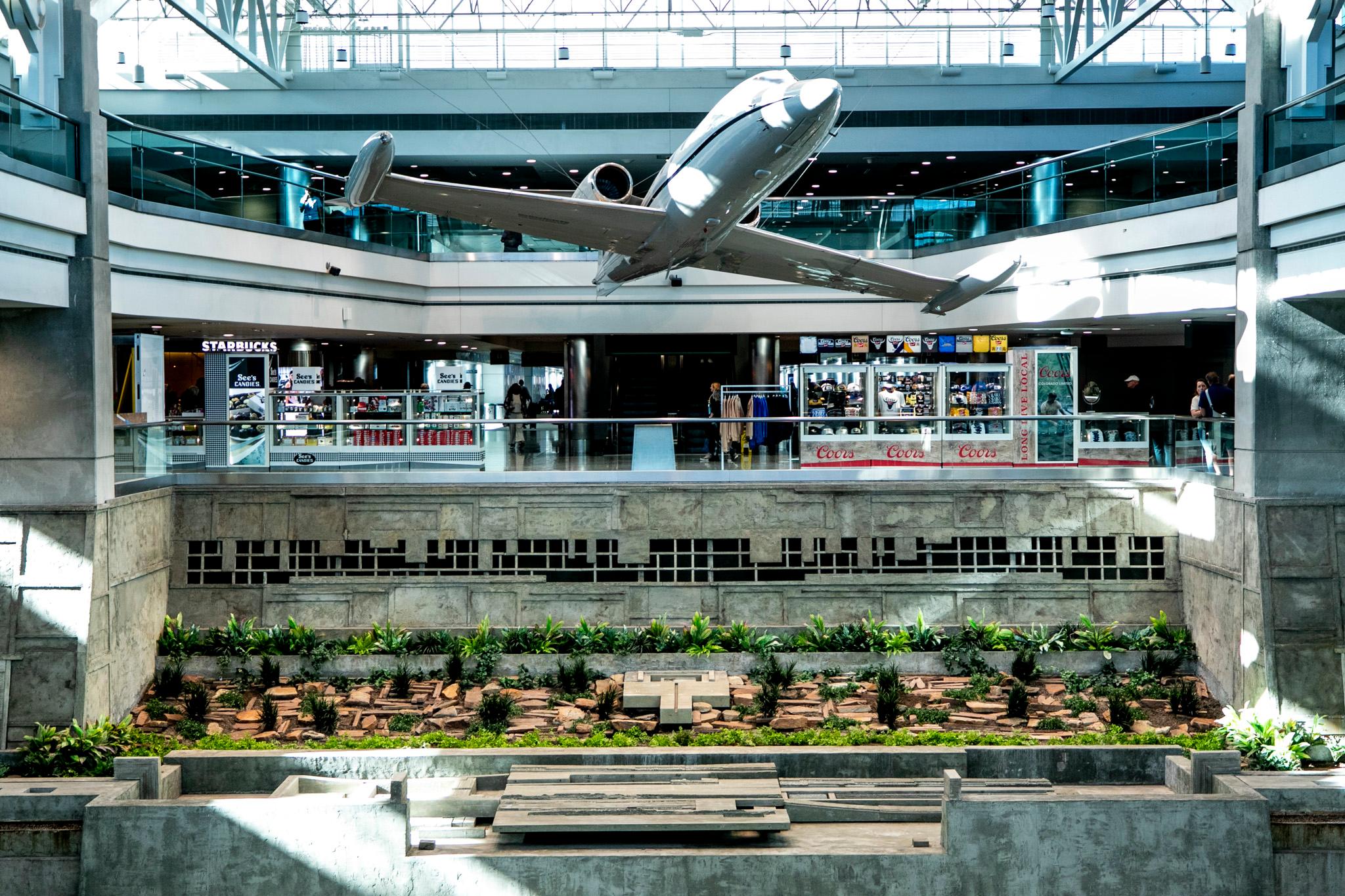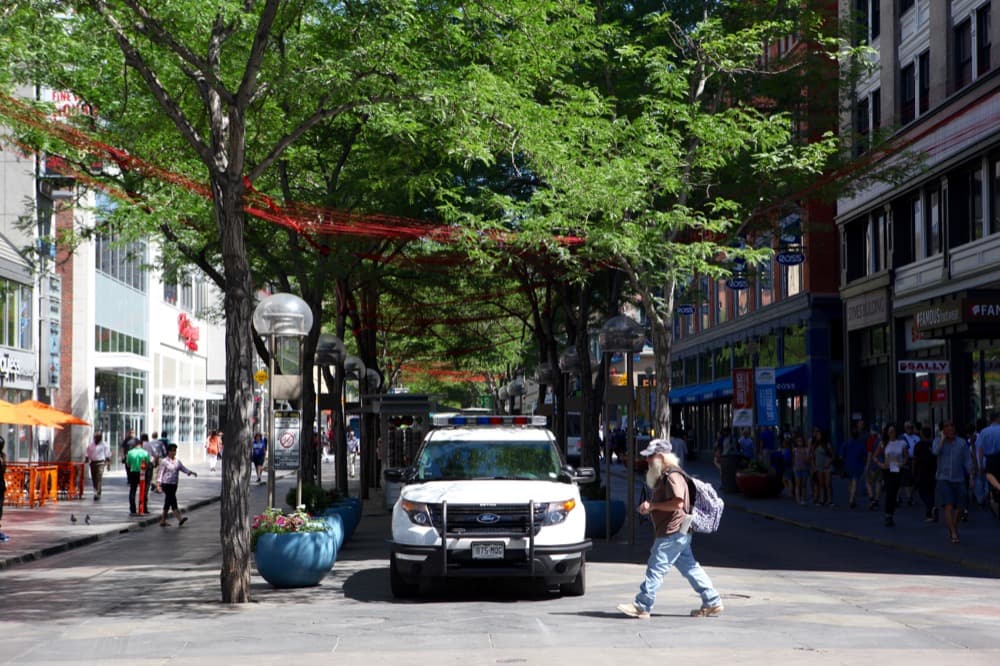
Media reports on a few violent incidents on the 16th Street Mall drove Denver's administration to a hardline response on Monday afternoon. With police cruisers lining the city's central tourist strip, Mayor Michael Hancock told a roomful of reporters that the city was going to "end the threat."
The city will spend $650,000 on increased patrols over the next few months, while the partially tax-funded nonprofit Downtown Denver Partnership will spend about $1 million a year on a new security manager, private security patrols and other measures, which we'll list below.
Hancock wants to defend Denver from a "scourge of hoodlums that have come to our city."
The Downtown Denver Partnership says that it has been planning this move for months, but the power of a handful of well-publicized incidents -- especially a video that showed a June 15 fight involving two men of seemingly different income brackets -- was obvious at the press conference.
"It incensed me. It made me sick to my stomach. Because that's not who we are in Denver," Hancock said. " ... We will not tolerate people who want to intimidate and harass our residents, our employees, our employers, our visitors who want to enjoy the mall and downtown Denver."
He continued: "We'll use every power within this city, every resource that we have to make sure we end the threat immediately. I never want to see another video like that again, in this city. It's unfortunate that it had to happen here, or anywhere, but we're not going to tolerate it."
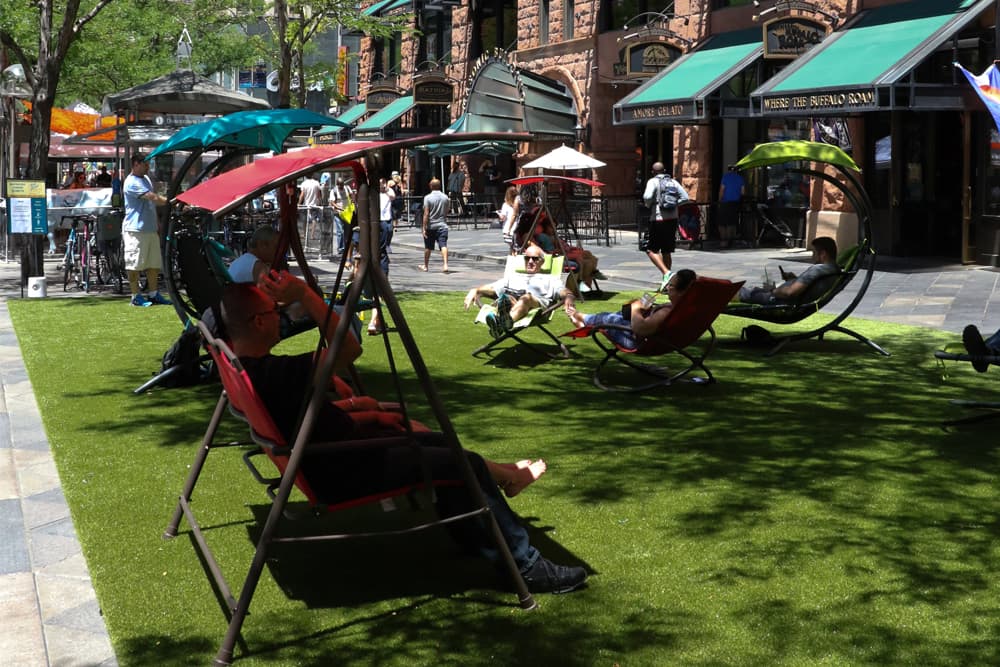
Throughout the press conference, Hancock and others singled out "urban travelers" as the threat.
"We're not talking about Denver's homeless," Hancock said, noting that he was sure some would try to twist his words. "We're talking about those we call urban travelers."
Chief Robert White said that "travelers" are "individuals that we have not seen in the past" who "aren't necessarily homeless" and generally aren't seeking city services.
"They're not interested in doing the right thing," he said afterward. (The city's stated plan does include an effort to connect people to services, by the way.)
City officials have also used the word "traveler" to describe the group that gathers on the so-called Stoner Hill in Commons Park. Some would call that group "crust-punks." They often carry large bags; many travel with dogs. Dreadlocks are popular but not required.
More than anything, they're young.
At the same time, the chief acknowledged that "the threat" hasn't changed by any quantifiable measure.
White said that there has been very little increase in the number of arrests and citations around 16th Street in the last three years. Arrests and citations decreased from 2014 to 2015, and this year have returned to a slightly higher level, he said.
"It ebbs and flows -- not significant," White said in an interview.
Then what is the city responding to here?
16th Street Mall is where worlds collide.
No doubt, it sees many people, especially in the summers, who don't have a permanent home. Many of them really do travel from city to city. It's easy enough to find intoxicated and disruptive people along its promenade. There really are occasional confrontations and obvious drug deals. It's also a tourist destination.
What's changing now, according to White, is how easy it is to document all that.
"You're dealing with social media. Everybody's got a camera. Everybody's got a voice. And then you get some incidents that are high profile," the chief said.
"Maybe the numbers are not catastrophic -- but the incidents are just so newsworthy."
As the Downtown Denver Partnership puts it: We're responding not to danger, but to the perception of danger.
Lastly, here are the specifics of the new security plan.
- Denver Police Department will triple the number of officers assigned to walk 16th Street Mall to a total of 16 through the summer.
- The Downtown Denver Partnership will choose from among a dozen private security contractors. The private guards won't be armed and won't have arrest or ticketing powers.
- Eugene Wade, the new security manager for the downtown partnership, is just starting on the job. He was a federal law enforcement officer with the Air Force Office of Special Investigations.
- The partnership and the city will limit some alleys to certain official uses, such as emergency services. Certain alleys have recently received new lighting, funded privately.
- The city may ban repeat offenders from the mall or parts of it. Chief White acknowledged that this would disperse people to other parts of the city. The police department, he said, would be "right there with them."

